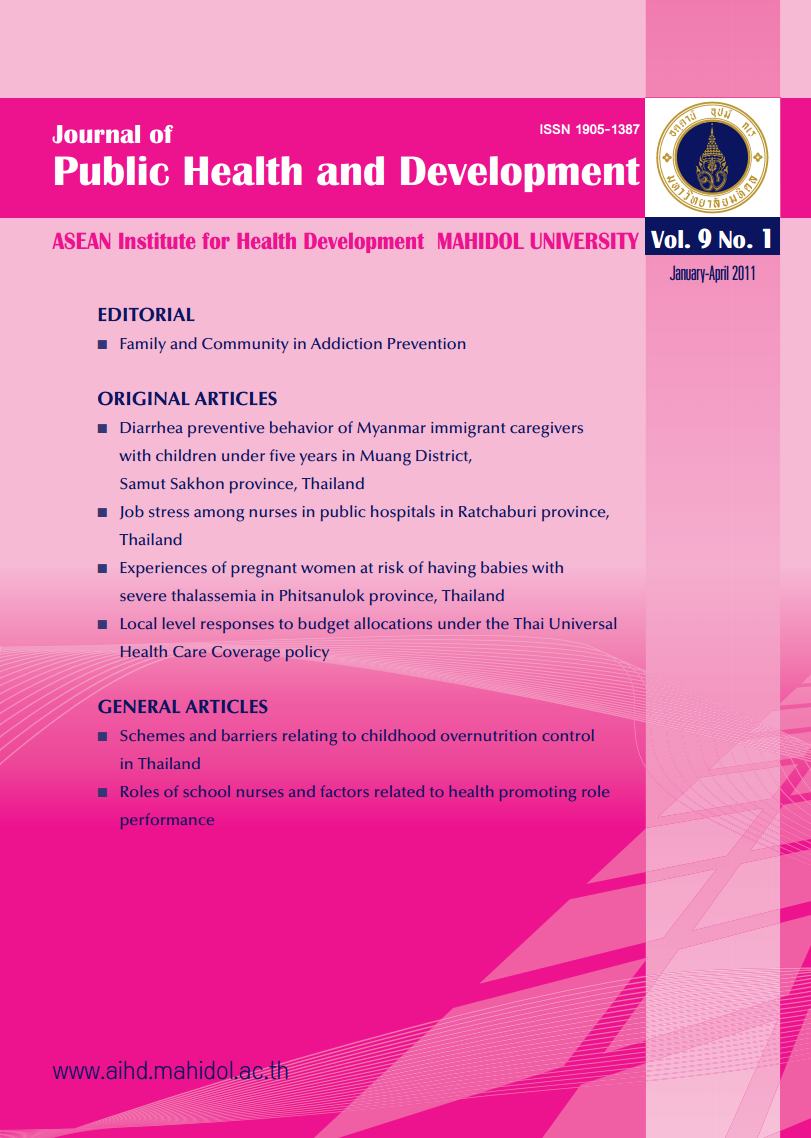Diarrhea preventive behavior of Myanmar immigrant caregivers with children under five years in Muang District, Samut Sakhon province, Thailand
Main Article Content
Abstract
This cross sectional descriptive study was conducted to describe the diarrhea preventive behavior and its related factors of Myanmar immigrant caregivers with children under five years in Muang district, Samut Sakhon province, Thailand. The 294 respondents were interviewed by trained interviewers during January,
2010. The Chi-square test and Fisher’s exact test were used to identify the relationship between diarrhea preventive behavior and related factors.
The results showed that 67.35% of respondents had a poor level of knowledge about diarrhea, 25.51% had a moderate level of perception, 59.52% had been exposed to a health brochure and 54.42% of respondents practiced a good level of diarrhea preventive behavior. Moreover, there was a relationship between diarrhea preventive behavior and the following variables : type of caregiver (p - value = 0.005), family income per month (p - value < 0.001), ability to speak Thai language (p - value < 0.001), listening to Thai language (p - value < 0.001), the level of diarrhea knowledge (p - value = 0.003), the level of perceptions (p - value < 0.001), expose to media (p - value < 0.001), and advice from persons (p - value = 0.009).
Therefore, the provincial public health office should strengthen primary health care services by providing additional health education programs for caregivers to build on the existing control program of communicable diseases within Myanmar immigrant communities.


